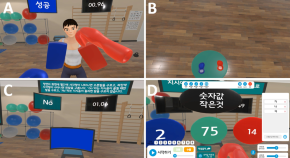Efficacy of integrating a semi-immersive virtual device in the HABIT-ILE intervention for children with unilateral cerebral palsy: a non-inferiority randomized controlled trial
Authors (first, second and last of 10)

Collection
'.'
'.'

